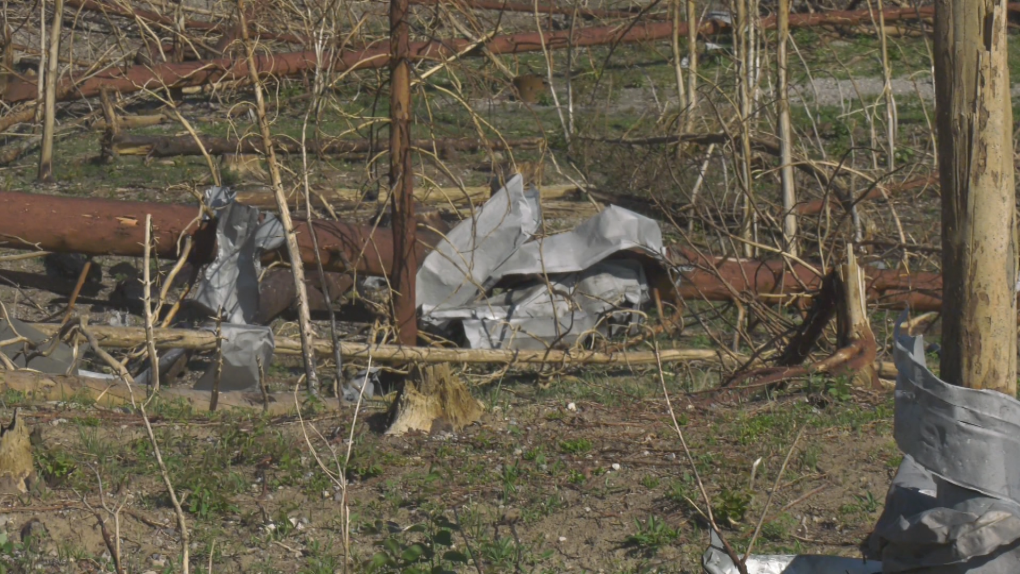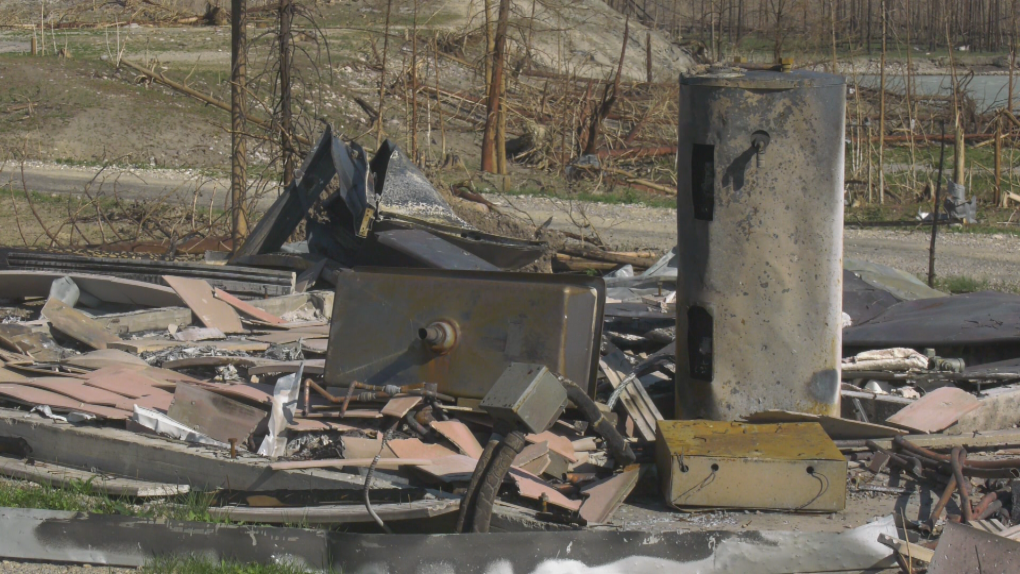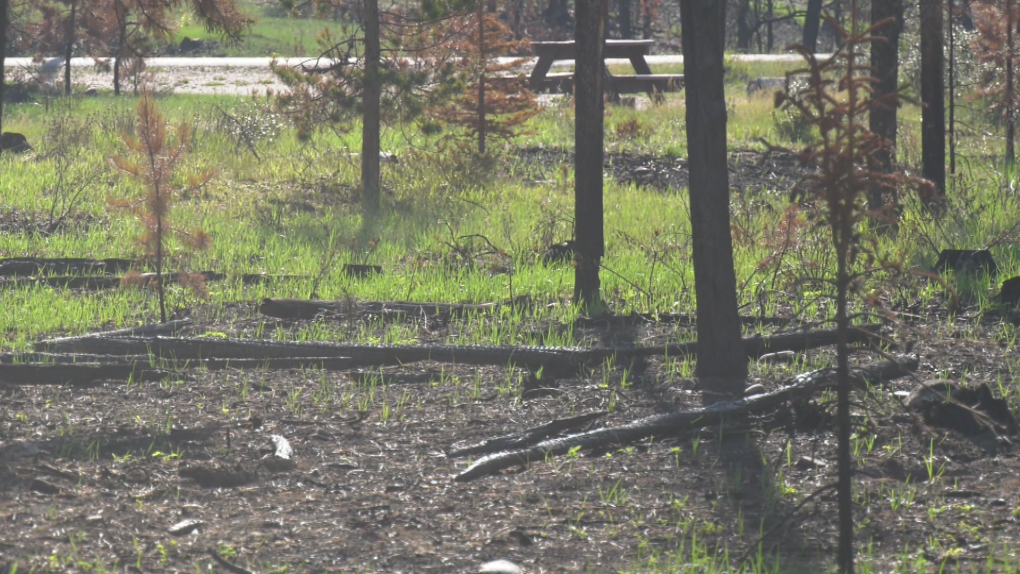Things are starting to look green again in Jasper.
Charred stumps and the remains of fire-ravaged trees still cover large tracts of land on the Jasper landscape, but life is returning quickly down below.
“This fire has even surprised me as a fire ecologist, with how quickly a lot of the ground cover has already started to come back,” said Landon Shepherd of Parks Canada.
“Even in the very severely impacted sites, both the rhizomes and the more extensive root systems of some of the trees and shrubs that were removed have already started to sprout pretty vigorously.”
 New growth can be seen emerging alongside torn and twisted metal left wrapped around trees by a firestorm that ripped through the Wabasso Campground region in late July. (Evan Kenny/CTV News Edmonton)The Jasper fire started as multiple fires that merged into one as they rippled through the forest, which was the driest it had been since the park began recording at the current weather station in 1962.
New growth can be seen emerging alongside torn and twisted metal left wrapped around trees by a firestorm that ripped through the Wabasso Campground region in late July. (Evan Kenny/CTV News Edmonton)The Jasper fire started as multiple fires that merged into one as they rippled through the forest, which was the driest it had been since the park began recording at the current weather station in 1962.
“In the last five years, we’ve been averaging two to four days of when we’ve been in extreme (conditions) during the entire fire season,” Shepherd said. “Leading up to this fire, we were in over two weeks of extreme.”
The fire was so intense it created its own weather system with winds powerful enough to toss a shipping container at the Wabasso Campground into the Athabasca River near the Wabasso Campground.
Those winds also damaged multiple structures at the Whistler Campground nearby.
 A shower facility destroyed by winds from a firestorm can be seen in Jasper National Park on Sept. 7, 2024. (Evan Kenny/CTV News Edmonton)The fire was devastating for the Jasper townsite and its residents, but Shepherd said it wasn’t all bad.
A shower facility destroyed by winds from a firestorm can be seen in Jasper National Park on Sept. 7, 2024. (Evan Kenny/CTV News Edmonton)The fire was devastating for the Jasper townsite and its residents, but Shepherd said it wasn’t all bad.
“This area needed to have fire,” Shepherd said. “(It) is going to become beautiful in its own way, and very important to a lot of species that haven’t had that sort of younger forest as habitat for a while.
“And that’s going to be, I think, a really good thing and an interesting thing for people to experience in Jasper National Park.”
The new forest will also help keep the area safe from future extreme fires, which Shepherd said are becoming more common.
“We’re actually in very good shape for the next 25 to 30 years,” he said. “You’re tending to have less intense fire behaviour in mixed fuels, fuels that include a high component of leafy vegetation, which is often what comes back following a wildfire.”
 Wildfires are critical in keeping Jasper National Parks landscapes healthy, as the new forests emerging afterward increase habitat diversity and offer protection during future fires. (Evan Kenny/CTV News Edmonton)As of Saturday, the 32,722-hectare fire was classified as under-control, meaning it’s not expected to expand outside of its 278-kilometre-long border.
Wildfires are critical in keeping Jasper National Parks landscapes healthy, as the new forests emerging afterward increase habitat diversity and offer protection during future fires. (Evan Kenny/CTV News Edmonton)As of Saturday, the 32,722-hectare fire was classified as under-control, meaning it’s not expected to expand outside of its 278-kilometre-long border.
The re-classification does not change current access to the park, officials said.
Multiple areas remain closed and work is underway to make sure Jasper’s roads, facilities and day-use areas are safe from hazards like fire-weakened trees.
For a current list of what is open, visit the Parks Canada website.
With files from CTV News Edmonton’s Evan Kenny







